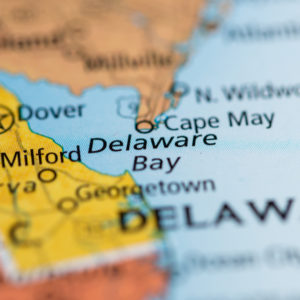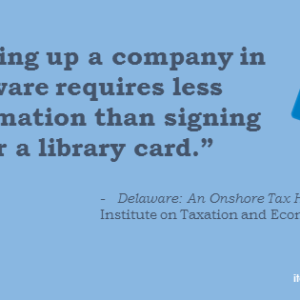When you think of a tax haven, you probably imagine the far off tropical islands of Bermuda or Grand Cayman, but the reality is that there is a major tax haven even closer to home in the state of Delaware. A new report from Institute on Taxation and Economic Policy (ITEP) explains how one our nation’s smallest states is one of the world’s biggest havens for tax avoidance and evasion.
What makes Delaware a tax haven? First, Delaware is one of the easiest places in the world to set up an anonymous shell corporation. In fact, setting up a company in Delaware requires less information than signing up for some library cards. This means that it is difficult for law enforcement to trace the activities of the anonymous shell corporations to the people who actually own and control them. This is what makes Delaware corporations an ideal vehicle not only tax evasion, but also for illicit activities like drug trafficking, terrorism finance and defrauding the government.
In addition, the state does not require companies to pay any tax on income relating to intangible assets held by companies based in the state. Companies take advantage of accounting gimmicks to shift their intangible income from other states into Delaware in order to take advantage of the zero tax rate on income earned from intangible assets. For example, Toy R Us has avoided millions in taxes by transferring its trademarks and trade names (including “Geoffrey the Giraffe”) into Delaware and charging its subsidiaries in other states for use of its trademarks.




